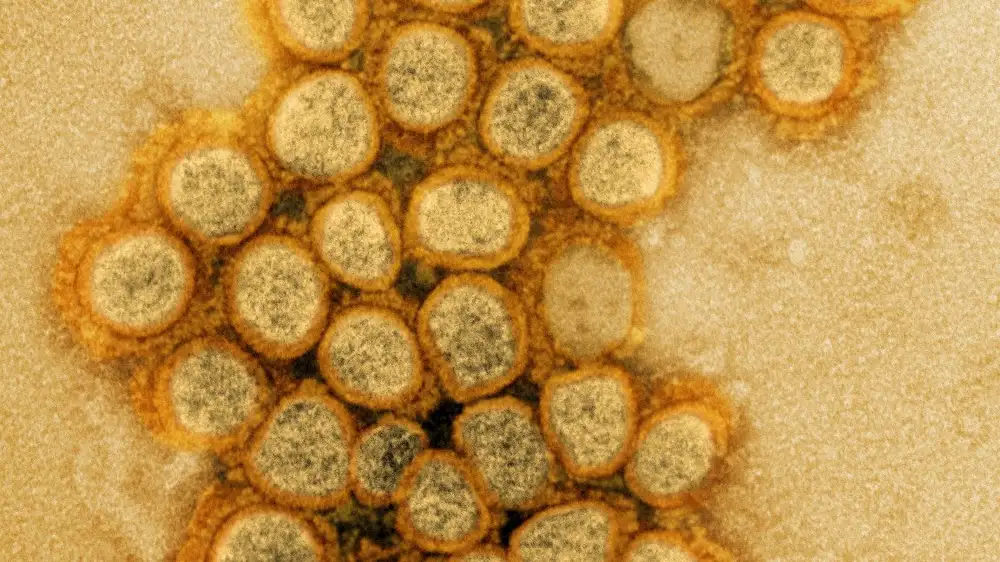While COVID-19 transmission remains low in the US, health experts are anxious about the potential for a big summer wave as two factors seem set for a collision course: a lull in infection activity that suggests protective responses have likely waned in the population, and a new SARS-CoV-2 variant with an infectious advantage over other variants.
The new variant is dubbed NB.1.8.1. Like all the other currently circulating variants, it's a descendant of omicron. Specifically, NB.1.8.1 is derived from the recombinant variant XDV.1.5.1. Compared to the reigning omicron variants JN.1 and LP.8.1, the new variant has a few mutations that could help it bind to human cells more easily and evade some protective immune responses.
On May 23, the World Health Organization designated NB.1.8.1 a "variant under monitoring," meaning that early signals indicate it has an advantage over other variants, but its impact on populations is not yet clear. In recent weeks, parts of Asia, including China, Hong Kong, Singapore, and Taiwan, have experienced increases in infections and hospitalizations linked to NB.1.8.1's spread. Fortunately, the variant does not appear to cause more severe disease, and current vaccines are expected to remain effective against it.
Still, it appears to be swiftly gaining ground in the US, fueling worries that it could cause a surge here as well. In the latest tracking data from the Centers for Disease Control and Prevention, NB.1.8.1 is estimated to account for 37 percent of cases in the US. That's up from 15 percent two weeks ago. NB.1.8.1 is now poised to overtake LP.8.1, which is estimated to make up 38 percent of cases.
It's important to note that those estimates are based on limited data, so the CDC cautions that there are large possible ranges for the variants' actual proportions. For NB.1.81, the potential percentage of cases ranges from 13 percent to 68 percent, while LP.8.1's is 23 percent to 57 percent.
Increased vulnerability
Regardless of the point estimate, there is no doubt that NB.1.8.1 is spreading in the US. And it's doing the same in Europe. On Friday, the European Centre for Disease Prevention and Control warned that, while COVID-19 activity is currently low, a slow summer increase is beginning and could end up being large.
"[I]ncidence could increase in the coming weeks," Edoardo Colzani, ECDC's Head of Respiratory Viruses, said in a statement. "We do not anticipate the NB.1.8.1 variant to pose a greater public health risk than other Omicron-descendant variants, nor do we expect a significant impact on vaccine effectiveness against severe disease. However, following a winter with low SARS-CoV-2 circulation, population immunity against SARS-CoV-2 may have partly waned—particularly among older adults and other individuals who are at higher risk of severe disease—potentially increasing vulnerability as virus activity rises," he added.
The US, which tends to have waves after Europe does, is in the same position. The US has also had a quiet winter, and population immunity is probably low. But, unlike Europe, America's COVID-19 policies are currently in disarray. With the installation of anti-vaccine advocate Robert F. Kennedy Jr as the country's top health official, recommendations for COVID-19 vaccinations have been pulled back. In particular, vulnerable pregnant people, healthy children, and healthy adults under 65 may face barriers to access due to abrupt changes by Kennedy and the Food and Drug Administration. The Trump administration has also clawed back billions in funding for state public health efforts, including vaccination.
Staff cuts and policy changes at the US CDC have also taken a toll. On Monday, another CDC official involved in shaping COVID-19 vaccine policy resigned. The official, Fiona Havers, was responsible for collecting data on COVID-19 and RSV hospitalizations. In an email obtained by Reuters, she told her CDC colleagues today that she no longer had confidence that the COVID-19 and RSV data would be used "objectively or evaluated with appropriate scientific rigor to make evidence-based vaccine policy decisions."
On June 25–27, the CDC's Advisory Committee on Immunization Practices will meet to vote on recommendations for the use of COVID-19 vaccines. Last week, Kennedy fired all 17 experts on the committee and replaced them with several anti-vaccine panelists.

 Finland warms up the world’s largest sand battery, and the economics look appealing
Finland warms up the world’s largest sand battery, and the economics look appealing